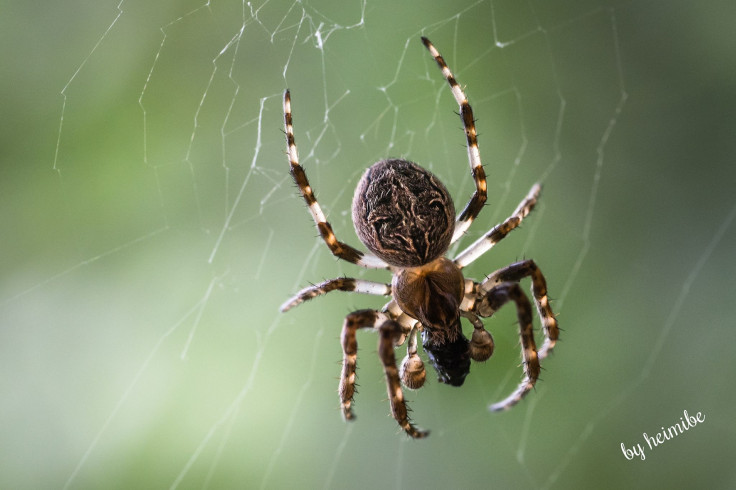Mind Over Matter: Arachnophobia Makes Spiders Look Bigger Than They Actually Are

Seeing is believing, they say, but according to a recent study, the eyes are easily deceived. Conducted by researchers at Ben-Gurion University in Israel, the study found that a fear of spiders, arachnophobia, can alter the person’s perception of the arachnids so that they appear larger than they actually are.
For their study, the researchers recruited 25 women who were asked to estimate the size of spiders, butterflies, and birds in photos. Prior to estimating, the women were split into two groups — low or high fear of spiders — based on their answers to a questionnaire that gauged severity of arachnophobia. The questions were designed to differentiate between fear and general unpleasantness, which allowed the researchers to control for differences in size estimation related to disgust.
Although both groups rated the arachnids equally as unpleasant, it was only the group with a high fear of spiders that overestimated their sizes. When it came to the birds and butterflies, however, there were no differences between the groups in terms of estimated sizes. In a statement, the researchers said these results suggest there’s more going on than a simple difference of opinion. “This study revealed how perception of even a basic feature such as size is influenced by emotion, and demonstrates how each of us experiences the world in a unique and different way,” said Dr. Tali Leibovich, a PhD researcher at BGU’s Department of Brain and Cognitive Sciences.
This is not the first time scientists have recognized the mind’s ability to warp perception. The study noted past research that found people perceive negative stimuli, like a circle with a swastika in the center, as larger than positive or neutral stimuli, like a dollar sign.
A study published this year also found a person's weight could interfere with their perception of distance; obese people saw destinations at least 10 percent further than those with an normal weight. “It is a conscious perception of the world, but it’s not based on conscious perception of the body or feelings of laziness” study author Dr. Jessica Witt told The Telegraph. “It cannot be controlled… you can’t will yourself to see that target as closer or that hill as less steep.”
While the current study’s results suggest it’s a fear of spiders that alters perception, Leibovich said it’s possible that arachnophobes already had an altered perception, and that their fear grew out of it. Only future studies will uncover the answers to this, and serve “as a basis to developing treatment for different phobias.”
Source: Leibovich T, Cohen N, Henik A. Itsy bitsy spider?: Valence and self-relevance predict size estimation. Biological Psychology . 2016



























